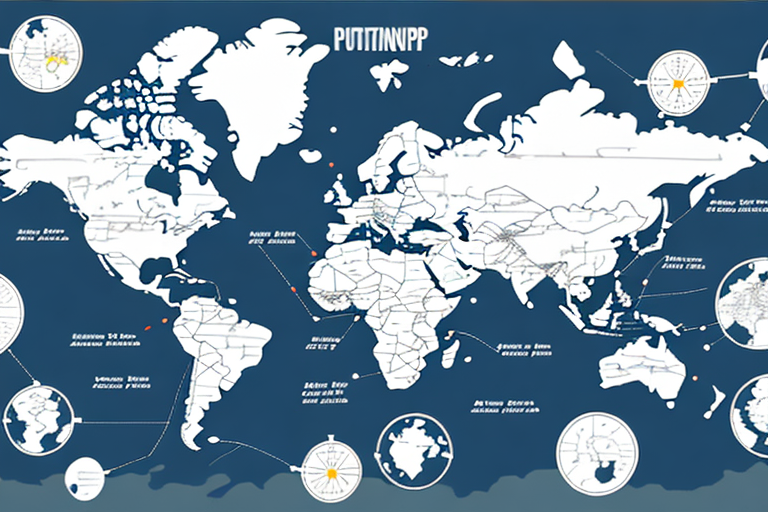Understanding the USPS Zone System
The United States Postal Service (USPS) Zone System is a standardized method for calculating shipping costs based on the distance between the package's origin and destination. The U.S. is divided into multiple zones, each representing a specific range of distances from the shipping origin. The higher the zone number, the farther the destination from the origin, resulting in higher shipping costs.
How the Zone System Affects Shipping Costs
Shipping costs increase with the zone number because packages travel longer distances. For example, shipping to Zone 1 (local) is significantly cheaper than shipping to Zone 8 (international). Accurately determining the zone is essential for businesses to manage shipping expenses effectively.
Delivery Time Estimates by Zone
In addition to costs, the Zone System also influences delivery times. Packages sent to higher zones typically take longer to arrive due to the increased distance and the complexity of routing. Understanding these timeframes helps businesses set accurate delivery expectations for their customers.
The Importance of the USPS Zone Calculator for Businesses
The USPS Zone Calculator is an invaluable tool for businesses aiming to optimize their shipping strategies. By accurately determining the shipping zone, businesses can estimate costs, plan budgets, and enhance customer satisfaction through reliable delivery timelines.
Cost Savings and Budget Planning
Utilizing the USPS Zone Calculator allows businesses to compare different shipping options and choose the most cost-effective method. This comparison is crucial for maintaining competitive pricing and ensuring that shipping expenses do not erode profit margins.
Streamlined Shipping Processes
Integrating the Zone Calculator into the shipping workflow enables businesses to automate rate calculations, reducing manual errors and saving time. This efficiency leads to smoother operations and faster processing of orders.
How to Use the USPS Zone Calculator
Using the USPS Zone Calculator is straightforward. Follow these steps to accurately determine shipping rates and zones for your packages:
Accessing the Tool
The USPS Zone Calculator can be accessed directly through the official USPS website. Navigate to the Price Calculator page to begin using the tool.
Inputting Shipping Details
Enter the origin and destination ZIP codes, along with the package's weight and dimensions. Accurate input of this information is crucial for obtaining precise shipping rates.
Comparing Shipping Options and Rates
The calculator will provide a list of available shipping services along with their corresponding costs. Compare these options to select the one that best fits your budget and delivery timeframe.
Maximizing Savings with the USPS Zone Calculator
There are several strategies businesses can employ to save money on shipping using the USPS Zone Calculator:
Utilize Flat-Rate Shipping Options
Flat-rate boxes and envelopes offered by USPS can be more economical for shipping heavier items. These options allow businesses to ship items at a fixed cost, regardless of weight or distance, within certain size limits.
Optimize Package Size and Weight
Accurately measuring and weighing packages ensures that businesses are not overcharged. Efficient packaging can reduce both size and weight, leading to lower shipping costs.
Consolidate Shipments
Combining multiple items into a single shipment can significantly reduce shipping fees. Consolidation minimizes the number of packages sent, thereby lowering overall costs.
Integrating the USPS Zone Calculator into Online Stores
For e-commerce businesses, integrating the USPS Zone Calculator into the checkout process enhances the user experience by providing real-time shipping rates. This integration can be achieved through various e-commerce platforms:
E-commerce Platform Integration
Platforms like Shopify and WooCommerce offer built-in USPS integrations. These integrations allow businesses to automatically calculate shipping rates based on the Zone Calculator during the checkout process.
Automating Shipping Calculations
Automation reduces the likelihood of human error and ensures that customers receive accurate shipping costs instantly. This efficiency improves customer satisfaction and streamlines order processing.
Troubleshooting Common Issues with the USPS Zone Calculator
While the USPS Zone Calculator is a reliable tool, users may occasionally encounter issues. Here are solutions to common problems:
Incorrect Rates or Package Dimensions
If the calculator provides unexpected rates, double-check the entered ZIP codes, weight, and dimensions. Ensure that the measurements are accurate and rounded up to the nearest inch to avoid discrepancies.
Website Errors and Technical Issues
In case of website errors, try clearing your browser cache or using a different browser. If problems persist, contact USPS customer service for support.
For more detailed information on troubleshooting, visit the USPS Help Center.
Additional Tips for Efficient Shipping
Beyond using the USPS Zone Calculator, implementing these best practices can further enhance your shipping efficiency:
Choose the Right Packaging Materials
Selecting sturdy and appropriately sized packaging materials can prevent damage during transit, reducing the need for returns and reshipments.
Stay Informed on USPS Updates
Regularly check the USPS website for updates on shipping policies, rate changes, and new services. Staying informed ensures that your shipping strategies remain effective and cost-efficient.
Invest in Shipping Insurance and Tracking
For valuable or time-sensitive shipments, consider purchasing additional insurance and tracking services. These options provide peace of mind and protect against potential losses.
Conclusion
Mastering the USPS Zone Calculator is essential for businesses looking to optimize their shipping processes. By understanding the Zone System, accurately inputting shipping details, and implementing cost-saving strategies, businesses can enhance their shipping efficiency and customer satisfaction. Stay proactive by integrating the calculator into your online platforms and continuously refining your shipping practices to stay ahead in the competitive market.
For further reading and authoritative resources on shipping rates and logistics, consider visiting the UPS Resources Page or the FedEx Shipping Guide.






















